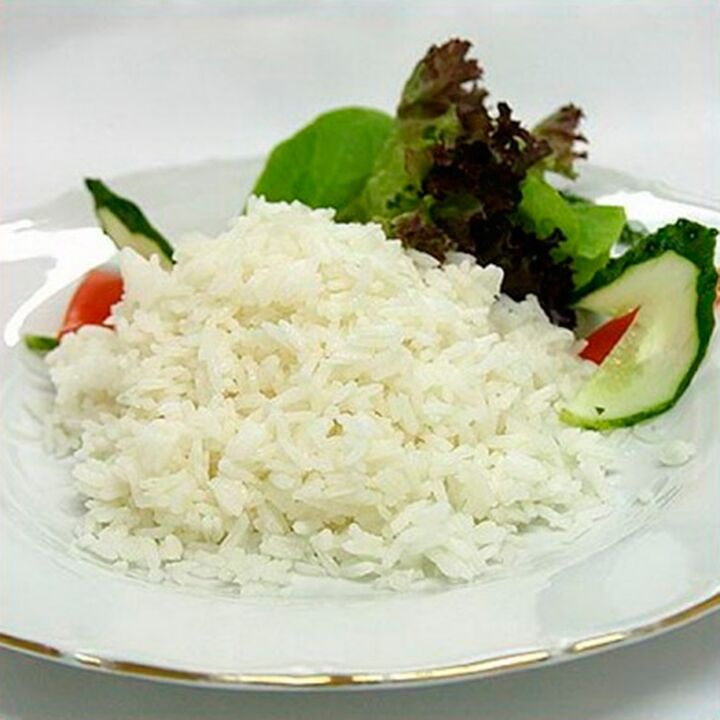
The fourteen-day Japanese diet is suitable for people who want to lose weight very quickly, however, the price of such "pleasure" is very high. This diet is rightly considered one of the strictest and strictest. And that means that, watching this, you will have to abandon your usual diet and exclude most products from your daily diet.
Why does the Japanese diet work? In this case, the diet is designed in such a way that it allows you to maintain a person's normal physical condition, at the same time contributing to the acceleration of metabolic processes in his body and the conversion of fat into energy, ie burning it.
By the way, why the diet is called exactly Japanese, no one can answer, because it does not include the use of rice or seafood, which make up the daily diet of the Japanese.
The differences between a 14-day and a 7-day Japanese diet are insignificant at first glance. Both eliminate the use of carbohydrate-rich foods. A fourteen-day weight loss diet gives the best effect, however, it is twice as hard to survive 14 days without your favorite buns and pies. It should be borne in mind that you can lose weight with the help of any Japanese diet no more than once a year. Failure to do so may result in poor health.
Japanese diet products for 14 days
List of foods banned from the 14-day Japanese diet:
- any alcoholic beverages;
- salt, sugar, spices, condiments;
- smoked meat, fatty meat, fish;
- marinade;
- black tea, cream;
- melted cheese, butter;
- any animal fat;
- baking, pastries, bread (you can use a small amount of crackers several times a week);
- sweet fizzy drinks.
List of foods allowed by the 14-day Japanese diet:
- black ground coffee;
- any fruits, vegetables: cabbage, carrots, zucchini, tomatoes, cucumbers, lettuce, parsley;
- chicken eggs;
- vegetable oil (sunflower, mustard, olive, etc. );
- lean meat, fish (it is best to cook or steam, for a change you can fry in sunflower oil once a week);
- fat-free kefir;
- mineral water, fruit juices, green tea. The amount of fluid consumed per day should not be less than 2 liters.
It is not advisable to change the products listed in the diet menu for each day, because this diet is composed for a reason. Also, do not interrupt your diet for a day or two.
Advantages and disadvantages of Japanese diet for 14 days
Benefits of a Japanese diet for 14 days:
- almost 100% weight loss result (up to 9 kg in 2 weeks);
- lost weight does not return in the following years;
- complete rejection of food, no starvation is assumed;
- helps eliminate edema, removing unnecessary harmful substances from the body.
And now about the shortcomings. The Japanese diet, which should be kept for 14 days, in most cases causes a deterioration in well-being. Accelerating metabolism, low-calorie diet, of course, can not go unnoticed by the body. Usually women try to lose weight this way.
Many of those who have already tried the effect of the weight loss method on themselves admit that in the first days of the diet they experienced a strong feeling of hunger that did not leave them even after eating. Approximately half of women who lose weight using the 14-day Japanese diet said that after a two-week change in diet, their health deteriorated sharply, and some diseases worsened. Therefore, before you start to lose weight, it is still recommended to visit a doctor and undergo a medical examination of the body. It is unlikely that gastritis will appear on the background of a two-week change in diet, but this time is enough to make the inflammation of the gastric mucosa worse.
You should not follow the Japanese diet for people with high blood sugar, thyroid disorders, cardiovascular diseases. Some of the foods prescribed by this diet can also be harmful. For example, starting the day with a cup of strong coffee should not be for those who often have high blood pressure, manifestations of gastritis or stomach ulcers.
The diet should be abandoned if its adherence is accompanied by alarming symptoms: dizziness, fainting, loss of appetite, pain of varying intensity in the stomach, intestines, nausea, stool changes, headache.
It is very difficult to stick to a certain diet for a person who spends most of the day outside the home. You agree, at work there are sometimes not a minute of free time just for snacks, not to mention hourly meals. Therefore, to lose weight with this diet, it is better to choose a time to rest.
Housewives are much easier in this case. However, if you do not live alone, keep in mind that you will have to cook ordinary household food for 14 days (do not lose weight! ) Or, in extreme cases, attend its preparation, which is very difficult. If you have already decided to lose weight this way, then provide yourself with patience and willpower.
After a period of 14 days, it is important to leave the diet properly. You do not need to immediately lean on foods rich in calories, you can treat yourself to something sweet (small portion). With an improper diet, after the end of the diet, some of the extra pounds will return, and quite quickly.
In case the Japanese diet seems too difficult for you, remember that there are people who voluntarily refuse to eat large amounts of food, eat only vegetables, fruits and cereals (vegans, raw foodists, fruit growers), feel great and have no health problems. If one person enjoys eating only plant foods without feeling any discomfort, then you can stay on a low-calorie diet for only 2 weeks.





















